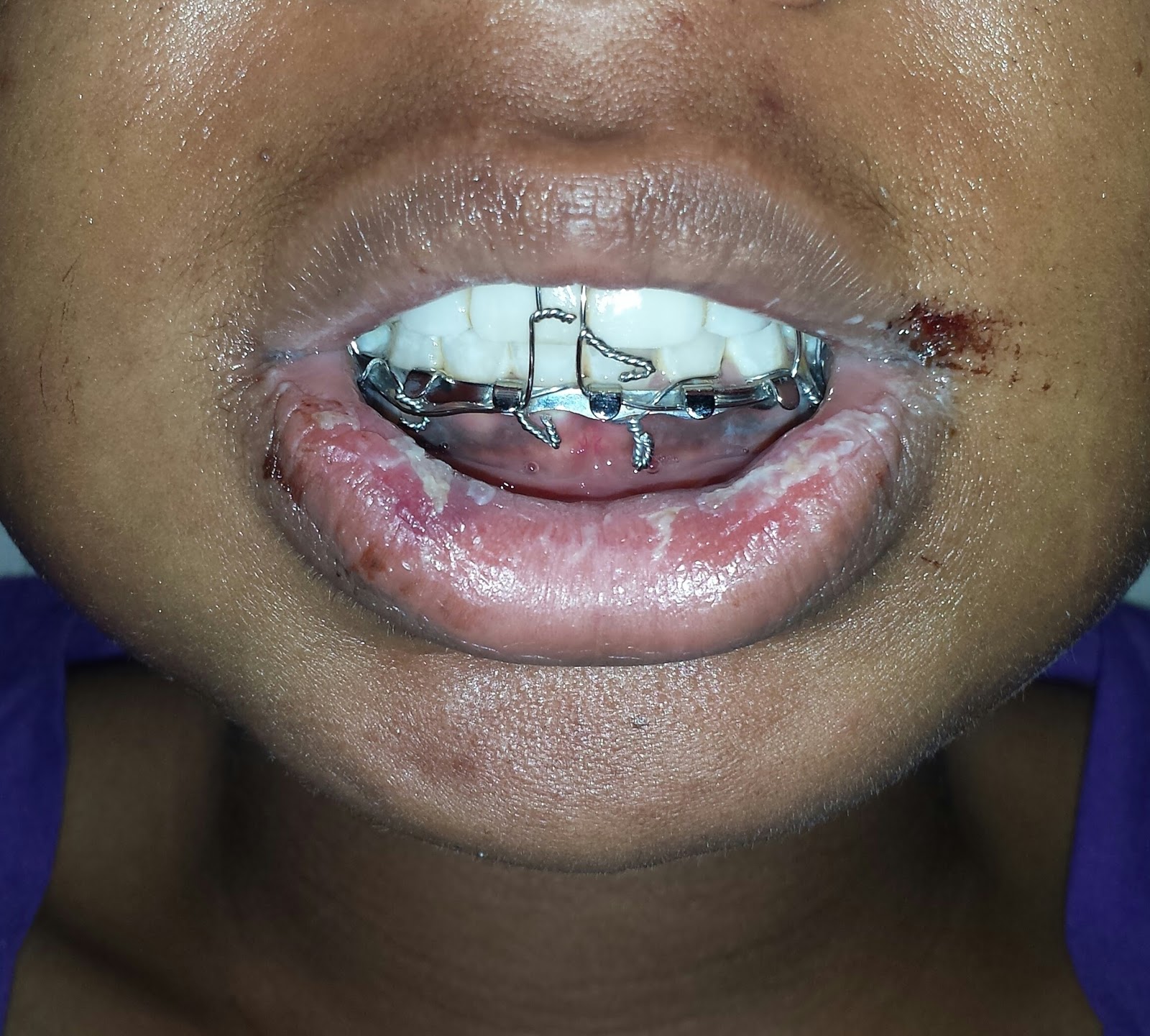Mouth wired shut is a medical procedure often utilized in various scenarios, including jaw fractures, serious dental issues, or specific surgical interventions. This article aims to delve deeply into what it means to have your mouth wired shut, the reasons behind the procedure, the recovery process, and the emotional and physical impacts it can have on a patient’s life.
The concept of having one's mouth wired shut can seem daunting. Many individuals may find themselves apprehensive about the implications of such a procedure, especially regarding their daily lives, eating habits, and social interactions. Understanding the procedure's intricacies can help alleviate some of these concerns and provide clarity on what to expect.
This article will provide a comprehensive guide on the topic of "mouth wired shut," exploring its medical significance, recovery strategies, potential complications, and tips for coping during this challenging time. Whether you are considering this procedure or know someone who is, this guide will serve as a valuable resource.
Table of Contents
- What is Mouth Wired Shut?
- Reasons for the Procedure
- The Procedure Itself
- Recovery Process
- Managing Discomfort
- Emotional Impacts
- When to Seek Help
- Conclusion
What is Mouth Wired Shut?
Mouth wired shut is a surgical procedure where a patient's jaw is immobilized using wires or similar materials. This technique is employed to ensure that the jaw remains in a fixed position during the healing process. The procedure may be temporary or long-term, depending on the underlying medical condition being treated.
How is it done?
The procedure typically involves the following steps:
- Administration of anesthesia to ensure the patient is comfortable and pain-free.
- Insertion of wires through the teeth to hold the jaw in place.
- Securing the wires to prevent any movement in the jaw.
Who performs the procedure?
This procedure is usually carried out by oral and maxillofacial surgeons or orthodontists, depending on the patient's specific needs and conditions.
Reasons for the Procedure
There are several reasons why a person might undergo the mouth wired shut procedure, including:
- Jaw fractures resulting from accidents or sports injuries.
- Severe dental issues requiring immobilization for healing.
- Reconstruction after surgery to correct jaw alignment.
- Treatment for certain medical conditions like temporomandibular joint (TMJ) disorders.
The Procedure Itself
The actual process of wiring the mouth shut is typically straightforward but requires careful planning and execution:
- The patient is first assessed for any specific needs or concerns.
- Anesthesia is provided to ensure a painless experience.
- The surgeon will then proceed to wire the jaw, ensuring that it is properly aligned.
- Post-procedure instructions are provided to the patient, including dietary restrictions and care for the wired jaw.
Recovery Process
Recovery from having one's mouth wired shut can vary depending on the individual and the reason for the procedure. Here are some common aspects of recovery:
- Initial discomfort and pain are common but can be managed with prescribed pain relief.
- Patients are typically required to follow a liquid diet to ensure proper nutrition while their jaw heals.
- Regular follow-up appointments are essential to monitor healing and adjust the wiring if necessary.
Dietary Adjustments
During recovery, patients must adapt to a liquid or soft food diet. Here are some recommended options:
- Soups and broths
- Protein shakes and smoothies
- Pureed fruits and vegetables
- Mashed potatoes and other soft foods
Managing Discomfort
Managing pain and discomfort during the recovery phase is crucial for a smooth healing process. Here are some strategies:
- Follow the prescribed pain medication regimen strictly.
- Use ice packs to reduce swelling and discomfort.
- Maintain good oral hygiene to prevent infections.
Emotional Impacts
Having your mouth wired shut can also have emotional effects. Patients may experience:
- Frustration due to dietary restrictions and communication barriers.
- Feelings of isolation as social interactions may be limited.
- Anxiety about the healing process and eventual outcomes.
Coping Mechanisms
Here are some coping strategies to address emotional challenges:
- Engage in hobbies that do not require verbal communication.
- Use technology to stay connected with friends and family.
- Consider speaking with a mental health professional if feelings of anxiety or depression arise.
When to Seek Help
While recovery is often straightforward, there are times when patients should seek medical attention:
- If there is excessive swelling or bruising.
- If pain increases instead of decreasing over time.
- If there are signs of infection, such as fever or unusual discharge.
Conclusion
In conclusion, having your mouth wired shut is a significant procedure that can be necessary for various medical reasons. Understanding the procedure, recovery, and emotional impacts can help prepare individuals for this experience. It is essential to follow medical advice, maintain open communication with healthcare providers, and seek support from loved ones during recovery.
If you or someone you know is facing this procedure, consider leaving a comment or sharing your experiences. For further information and articles on related topics, please explore our website.
Sources
- American Association of Oral and Maxillofacial Surgeons (AAOMS)
- National Institutes of Health (NIH)
- Centers for Disease Control and Prevention (CDC)
Also Read
Sergio Lima Zipline: The Ultimate Adventure ExperienceHow Long Is The National Anthem? Understanding The Duration And Significance Of "The Star-Spangled Banner"
Chris Noth: The Versatile Actor Behind Iconic Characters
12 Questions To Ask Your Boyfriend: Deepening Your Relationship
John Madden: The Legendary Coach And Broadcaster
Article Recommendations
- Actor Rapper Common
- Astrological Sign For October 4
- Is Discord Banned In Turkey
- What Do Pumpkins Grow On
- Blue Bicycle York
- Galazeye Reviews
- Shine On Harvey Moon
- What Happened To Ronnie Coleman
- Sugar Babies
- Luxury Villas Greece Le Collectionist



